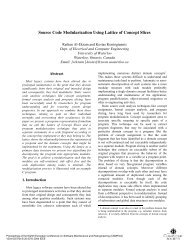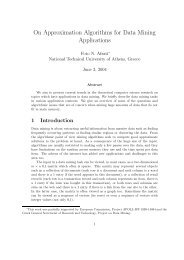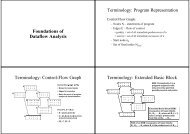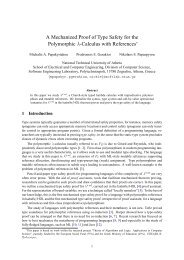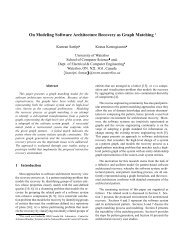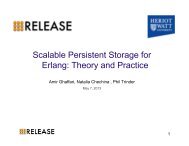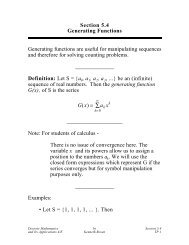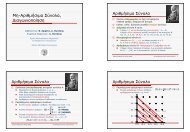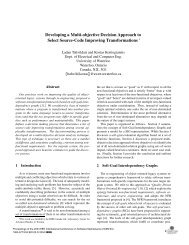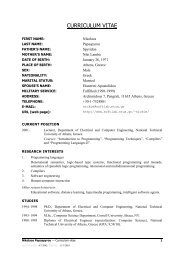Manual
Manual
Manual
You also want an ePaper? Increase the reach of your titles
YUMPU automatically turns print PDFs into web optimized ePapers that Google loves.
Chapter 11: Frequently Asked Questions 115<br />
First, read this fine manual. Beyond that, you can send mail to help-bison@gnu.org.<br />
This mailing list is intended to be populated with people who are willing to answer questions<br />
about using and installing Bison. Please keep in mind that (most of) the people on the<br />
list have aspects of their lives which are not related to Bison (!), so you may not receive<br />
an answer to your question right away. This can be frustrating, but please try not to honk<br />
them off; remember that any help they provide is purely voluntary and out of the kindness<br />
of their hearts.<br />
11.9 Bug Reports<br />
I found a bug. What should I include in the bug report<br />
Before you send a bug report, make sure you are using the latest version. Check<br />
ftp://ftp.gnu.org/pub/gnu/bison/ or one of its mirrors. Be sure to include the version<br />
number in your bug report. If the bug is present in the latest version but not in a<br />
previous version, try to determine the most recent version which did not contain the bug.<br />
If the bug is parser-related, you should include the smallest grammar you can which<br />
demonstrates the bug. The grammar file should also be complete (i.e., I should be able to<br />
run it through Bison without having to edit or add anything). The smaller and simpler the<br />
grammar, the easier it will be to fix the bug.<br />
Include information about your compilation environment, including your operating system’s<br />
name and version and your compiler’s name and version. If you have trouble compiling,<br />
you should also include a transcript of the build session, starting with the invocation<br />
of ‘configure’. Depending on the nature of the bug, you may be asked to send additional<br />
files as well (such as ‘config.h’ or ‘config.cache’).<br />
Patches are most welcome, but not required. That is, do not hesitate to send a bug<br />
report just because you can not provide a fix.<br />
Send bug reports to bug-bison@gnu.org.<br />
11.10 Other Languages<br />
Will Bison ever have C++ support How about Java or insert your<br />
favorite language here<br />
C++ support is there now, and is documented. We’d love to add other languages; contributions<br />
are welcome.<br />
11.11 Beta Testing<br />
What is involved in being a beta tester<br />
It’s not terribly involved. Basically, you would download a test release, compile it, and<br />
use it to build and run a parser or two. After that, you would submit either a bug report<br />
or a message saying that everything is okay. It is important to report successes as well as<br />
failures because test releases eventually become mainstream releases, but only if they are<br />
adequately tested. If no one tests, development is essentially halted.<br />
Beta testers are particularly needed for operating systems to which the developers do<br />
not have easy access. They currently have easy access to recent GNU/Linux and Solaris<br />
versions. Reports about other operating systems are especially welcome.



